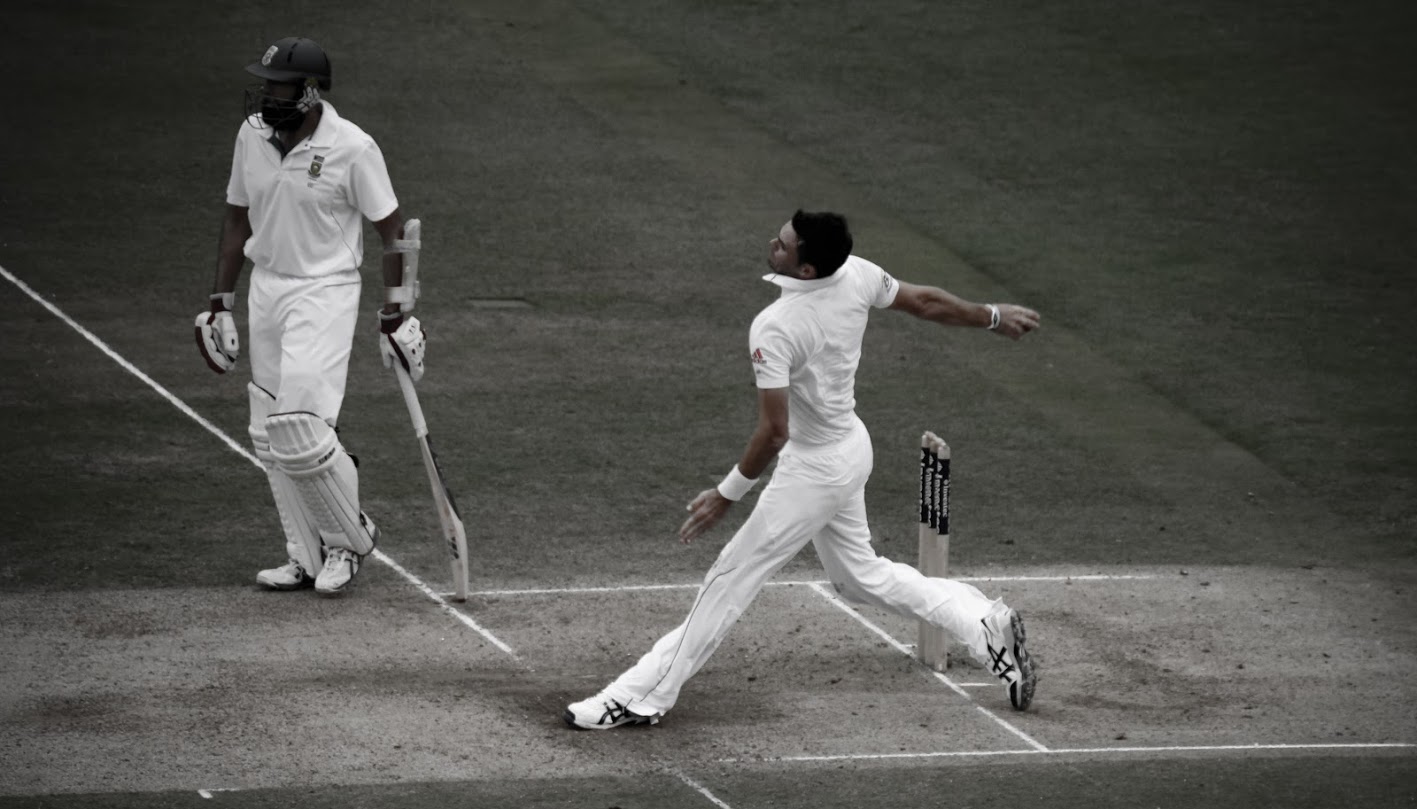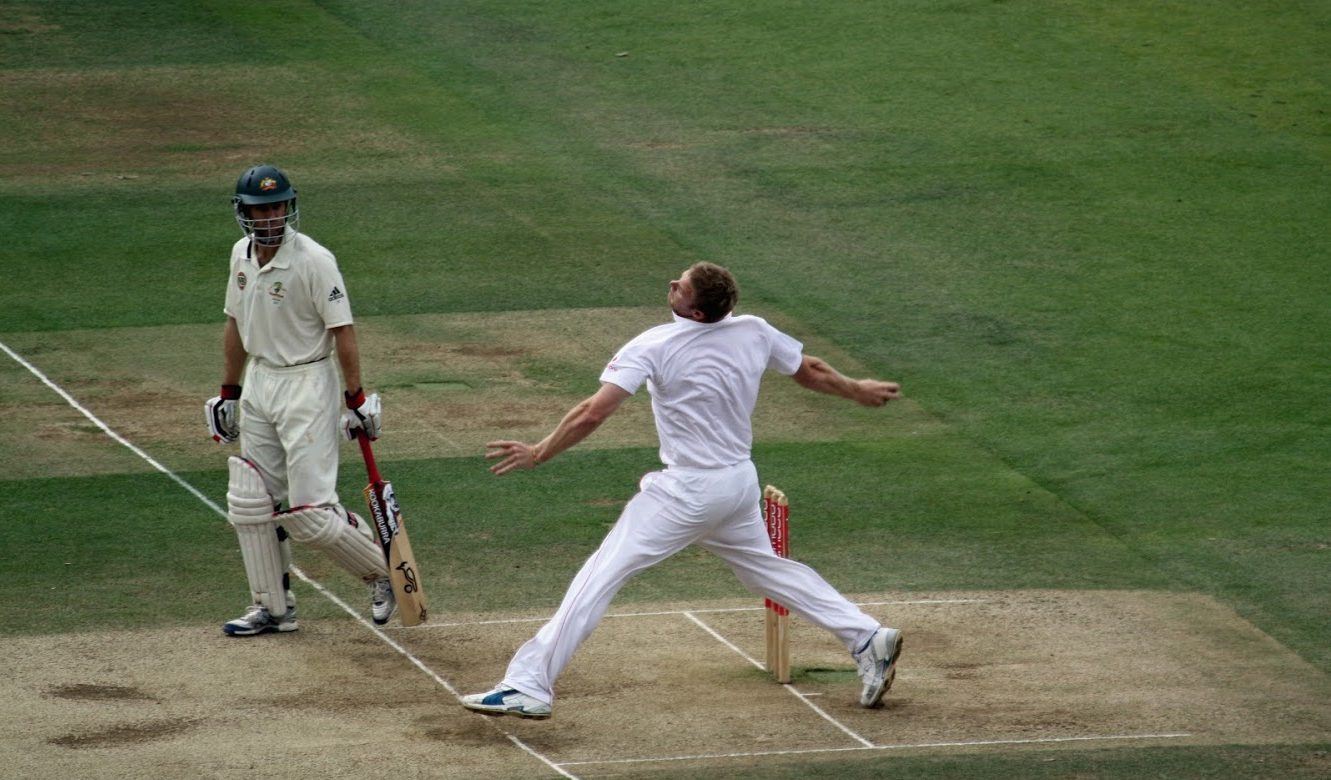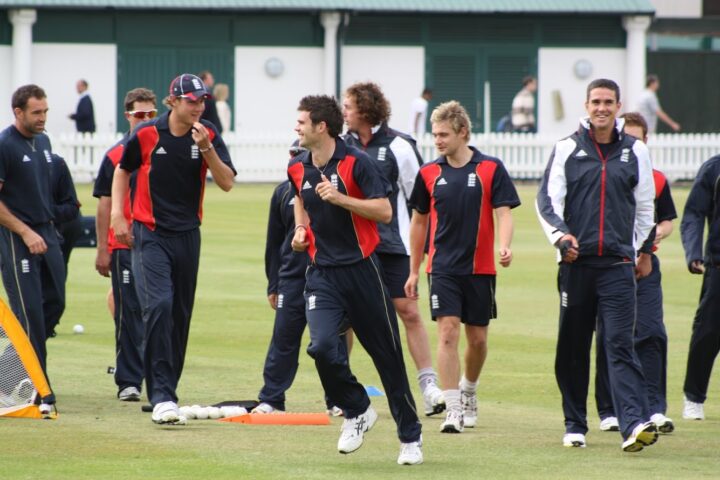Today we have the second part of Paul Potter’s piece remembering some great Ashes moments from an Australian perspective …
Adelaide 2010
Bell and Pietersen didn’t play a Test together in the ’09 Ashes. It was the latter’s injury that allowed the former back into the team at Edgbaston. Come the next series in South Africa, they were playing in the same team, a team that finally had a strong batting core.
There were times against Australia where it felt like Strauss or nothing. Strauss-Cook-Trott-Pietersen-Collingwood-Bell-Prior looked much better. Those guys and the bowlers staved off defeat against South Africa in between a massive win and ensured they won the series, despite being too exhausted to lift their arms and land a blow at the Bullring.
Things were going so well that they played the next series against Bangladesh in auto-captain mode, with Anderson remaining home with the regular Test and ODI captain. They never looked like paying a price for it.
Cricket was the one paying a price in the next series, but it was for reasons that were in no way the fault of the England team. Watching Pakistan in the present day is a delight, but we cannot forget how the greed of a few spot-fixers in 2010 soiled the game.
In the shadow of the biggest story in world cricket, observers quietly noted that England had broadly found their best team. What’s more, there were strong replacements challenging for places like Eoin Morgan and Chris Tremlett.
One of the last to confirm their spot on the Ashes tour, at least on form, was Alastair Cook. It took until the second-last Test against Pakistan to find an overdue century. And at Brisbane he made a score that doubled that, with suitably laudable contributions from Strauss and Trott.
Cook was one half of Australia’s recurring nightmare that winter. He and Trott worked a seemingly endless stream of balls off their hips, and cut wider and shorter deliveries to the point boundary. The second half involved England’s quicks bowling at the top of off stump with a little movement too. They also had Swann, a spinner who enabled the fast men to bowl shorter spells as the day wore on.
England dominated the second Test. It was their Amazing Adelaide. It rained. England still won. It rained again. England laughed.
The noise was stilled when Mitchell wrecked mayhem on the English instead of himself at the WACA. But the spectacle of Adelaide was soon repeated in broad terms at Melbourne and Sydney and, shall we say, complimented by the sprinkler dance.
England had finally broken their Ashes drought in Australia.
****
Brisbane 2013
If ever there was an Ashes series when England were favourites, it was the first half of the back-to-back series of 2013. Australia had been hammered by India in India and responded by hammering themselves. Suspensions were the flavour of the year for Australia, and when David Warner added his name to the list of players who had earned one, Mickey Arthur was told that he would need to find another job. Darren Lehmann’s honeymoon period couldn’t change the fact that England had a better team.
And they did win. But the most significant match that summer was not an Ashes match. It was the Champions Trophy Final between England and India. Cook’s team, up until that match, was a good one-day team. After the 2011 World Cup, they had won series against Sri Lanka, Pakistan, West Indies, Australia, South Africa and New Zealand. India was the only constant stumbling block. But they didn’t need to win a series at the Oval, just one match. A one-day match.
Rain turned it into a T20 match. If you want to pick a specific time that Cook’s team became obsolete for the requirements of ODI cricket, you could do worse than during those hours of rain. Cricket involving a white ball had become too compressed, with one-day cricket become too much like T20 for players like Cook. Yet it wasn’t the captain’s failure that was the major consequence of that game: it was Trott’s.
By his own admission, it was the beginning of the end. In the Ashes, the patient long-innings man of 2010 had turned into a batsman who made quick cameos, interspersed with the odd torturous cameo. Success hides many ills, but daylight intensified on Trott in the ODI series that followed. Mitchell Johnson was back. Mitchell Johnson was better. And Mitchell Johnson had Trott right where he wanted him.
Trott could be taken out of the firing line for what was essentially a training series. But Brisbane promised no such relief, either on the grass or in the paper. Australia’s media hadn’t been confident in 2010. The usual Pommy bashing was not in full flight, more of an apologetic whimper than anything else. Not so in 2013.
Aussie Aussie Aussie, Oi Oi Oi.
Such jingoistic flag-waving only backfired for one day. The Courier Mail, forgetting that their journalists only had a responsibility to spell players names correctly, not wave pom-poms as they did so, was forced to try and write an account of the day without naming the main character. For the rest of the series, it was no problem. Johnson was that character.
England imploded. Trott’s tour ended early, Tremlett was dropped after dismissing Steve Smith twice in Brisbane, Prior went from bad to worse at the WACA, Swann went from current to former cricketer (a status that Bresnan and Panesar also shared after Melbourne), and Rankin had to wait until Ireland was granted status to avoid that fate. And that was just the Tests.
The only ODI that England won came when Australia rested more of their players than for any other match, and England couldn’t even win an IT20 despite Australia’s Test team being in South Africa for its entirety.
It’s hard to imagine a worse tour.
2015
I never believed it would be like that back in England. The Aussies rightly started as favourites, but Clarke’s team, like its leader, was grimly trying to hold on for one more series. Ryan Harris never made it. His absence, like that of McGrath in ’05, would mean that the one bowler who might have kept things tight as well as take wickets was absent. Not all of the team were greybeards, but half a dozen of those at Cardiff were.
England’s team were also vulnerable, but they were younger. Should they manage to withstand the first strike, a not inconsiderable feat given what happened in the last series, they stood a chance.
Not collapsing at Cardiff, and then not allowing any of Australia’s batsmen (who all got starts) to score a century, was a key moment in the series. Australia hit back at Lord’s, but there was never a point in the series in which they were at better than parity. England took an important series lead at Edgbaston.
James Anderson’s absence from Trent Bridge would be pivotal, though. Even if Rogers fell early. And Smith. And Warner. And Marsh. And Voges. And Clarke. And Nevill. Wait, what the …?
The last three wickets lasted almost as long as the first seven. The latter only lasted one more ball. A generation of Australian cricketers would go to their retirements having never won an Ashes series in England. Stuart Broad had stopped them.
2017/18
Had England won the Ashes in Australia in 2017-18, it would have been on par with an Aussie win in England in 2013. Australia were always going to be the better team in Australia. Warner had been the player on the sidelines in ’13 – for part of the series. Stokes had to watch all of it from the boundary.
If the 2006-07 Ashes had been the Redemption Ashes, and the 2013-14 Ashes had been the Revenge Ashes, then the 2017-18 Ashes was the Righto Ashes. Smith’s scored a century? Righto. Starc’s taken wickets? Righto. England can’t do enough of either? Righto.
Media beat-up? Righto.
In one important personal sense it was different though. I actually saw a Test, the Boxing Day Test, live. It was the first Ashes Test I’d been to. I saw the Barmy Army singing, come fair times or foul for their team, and for that Test there were more fair times than foul than at any other point in the summer.
I moved behind them as Cook reached his half-century – just his half-century – and felt it was one of the more special moments I had ever witnessed in person at a cricket ground. Although the main prize had already been won by Australia, I got to experience two countering roars in quick succession on day one – the roar of the English when Warner was seemingly out, only for the Australian reply when the screen showed the no-ball.
That Test, for all the world the bore draw of the series, still contained so many moments that reminded me why I love Test cricket. It also contained one aspect that reminded me why bloggers like James should be unafraid to voice their objections when they feel they should object.
For the only Test in the series, admission for the final day was full price, compared to a gold coin donation for the final day of the other Tests. One of my mates had already had to fly home for work; the other mate and I decided not to attend, send a polite – and I do mean polite, there would have been no point being rude – email explaining why, and explored more of Melbourne before flying home.
The New Year saw another England defeat to finish the series. England won the ODIs but nobody, except Jason Roy, will remember the details.
******
Win or lose, Australians will continue to have all the England they can eat when they are playing down under – but only in Test cricket from now on. Recently, Cricket Australia entered a broadcasting deal that will hide white ball matches behind a paywall. I hope this isn’t the start of a slippery slope.
When Colin Graves recently remarked that young people ‘are just not attracted to cricket’, I reflected on the England teams I have seen. And it’s not just the ones mentioned here. The Women’s teams, captained by Charlotte Edwards and then Heather Knight, and even English county teams. All have provided great entertainment and great memories of a rivalry that goes back more than a century.
So I think I’ll sign off with a fitting final thought: Colin Graves’s statement was just as inaccurate as Harmison’s first ball in 2006. You just have to give kids the chance to love cricket. And that means serving up lashings of the stuff on free-to-air TV.
Paul Potter









Uh, the 2009/2010 series between South Africa and England was shared 1-1. Strauss made the brilliant decision, upon winning the toss, looking at the overcast skies to bat first. And in the process became the first England captain to be dismissed opening the batting, for a golden duck, since somewhere in the 1930s. England duly lost that match, to avoid winning the series.
Yes, you’re quite right. Apologies for the error.